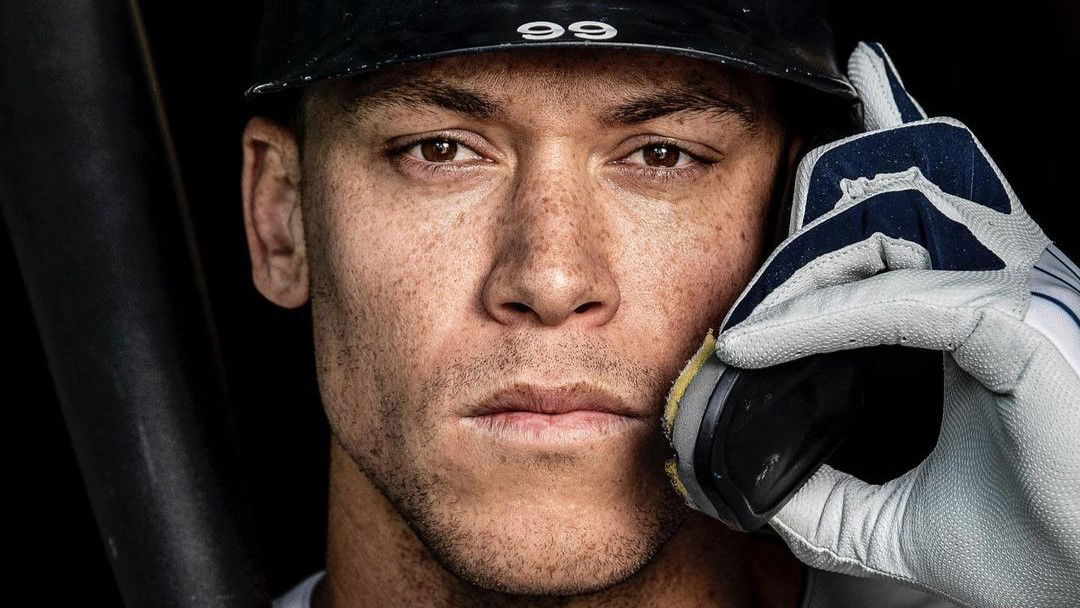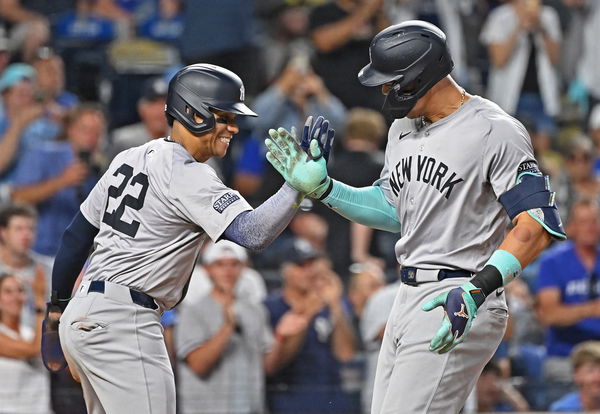

Back in the electric spring of 2013, Marlins Park didn’t feel like just another MLB stadium—it pulsed like a football arena. Flags waved. Horns blared. Fans danced in the aisles during a Dominican Republic vs. Venezuela clash in the World Baseball Classic. Former Marlins president still remembers that roar. “It was an atmosphere we want to recreate,” he said, “but never can.”
Watch What’s Trending Now!
Fast-forward to 2025, and David Samson is buzzing again—this time about Aaron Judge’s decision to suit up for Team USA in the 2026 WBC. When the Yankees captain publicly declared his commitment, few outside the room knew just how personal the moment was for USA Baseball GM Mike Hill. According to Samson, Hill was “jumping for joy.” Literally.
Why the elation? Hill understands something too few in U.S. baseball circles have fully embraced: winning the WBC doesn’t happen by chance. You don’t luck into greatness on the international stage—you build it. And to build it, you need superstars who care. Aaron Judge stepping up wasn’t just a lineup boost; it was a signal. A signal that Team USA might finally be taking this thing as seriously as Japan, the Dominican Republic, or Puerto Rico always have.

Imago
Samson didn’t hold back. “Players from those countries—they want to play. It’s pride. It’s heritage, and it’s deeper than the game,” he said. “The U.S. has been late to that party. But Judge? He gets it.”
And Aaron Judge’s words weren’t for show. In an interview with MLB Network, he spoke with quiet conviction: He isn’t joining Team USA to warm up for spring—he’s stepping into something bigger than himself. Wearing “USA” across his chest isn’t a marketing move; it’s personal. That kind of reverence reshapes how American players and fans view the WBC.
It’s the same emotional fuel that drives Japan, the Dominican Republic, and Puerto Rico. Now with Mike Hill at the helm, Mark DeRosa managing, and Judge leading the charge, Team USA enters the 2026 WBC not just loaded—but locked in. And if that roaring crowd in Miami returns, it won’t be by accident. It’ll be because the players finally brought the passion to match it.
Life without Aaron Judge: The game within the game
Juan Soto knows what it feels like to be feared—but now, he’s feeling something different: isolation. Since Aaron Judge’s absence from the lineup, Soto has noticed a clear shift in how pitchers attack him. “You can feel it right away,” Soto admitted. “They’re not pitching to me the same.” Without Judge looming behind him, pitchers no longer feel the pressure to throw Soto anything hittable. He’s seeing more junk early, fewer fastballs, and far fewer chances to do real damage. It’s a chess match now, and pitchers are happy to play it slow.
But this isn’t just about Soto’s personal stat line—it’s a lineup dynamic problem. Aaron Judge wasn’t just protection; he was a warning sign: Pitch to Soto or face someone equally terrifying. Without that balance, the margin for error shrinks, and Soto’s patient approach—while elite—can only do so much if there’s no one behind him forcing action. It’s a reminder of just how much lineup construction matters at the highest level. Soto can carry a team, sure—but even the greats need gravity around them to stay dangerous.
In the end, without Judge behind him, Soto’s plate appearances have become a test of patience over power. He’s still elite, but the fear factor has faded for opposing pitchers. Now, to unlock his full impact, the Yankees need to bring back that intimidation in the lineup around him.







